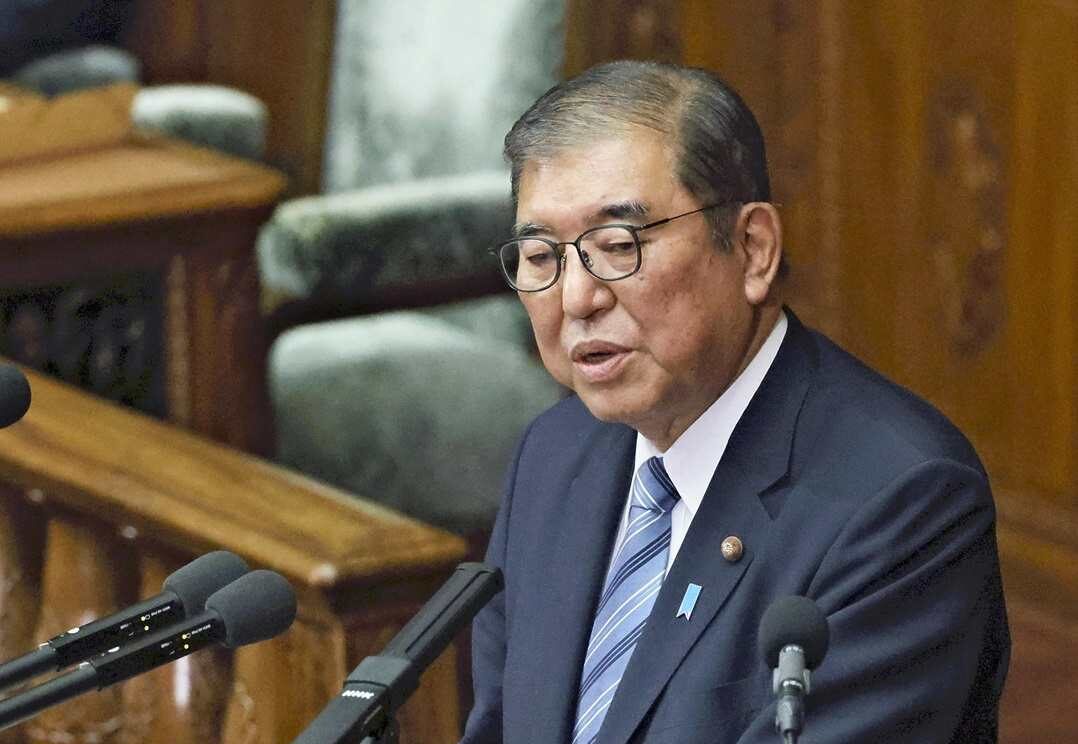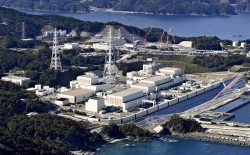Japan PM Ishiba Stresses Importance of Nuclear Deterrence While Commenting on Nihon Hidankyo’s Nobel Peace Prize

Prime Minister Shigeru Ishiba
21:00 JST, December 11, 2024
Prime Minister Shigeru Ishiba stressed the importance of nuclear deterrence while congratulating Nihon Hidankyo (Japan Confederation of A- and H-Bomb Sufferers Organizations) on receiving the Nobel Peace Prize.
“Their efforts to speak out over the years in favor of nuclear abolition have been rewarded,” he said, speaking at a House of Representatives Budget Committee meeting on Tuesday. He added, “Countries possessing nuclear [weapons] such as North Korea, China and Russia surround [Japan], so we are working hard to enhance the effectiveness of extended deterrence.”
His argument seemed to be that extended deterrence based on the U.S. nuclear umbrella is indispensable amid the worsening security environment surrounding Japan.
Meanwhile, Chief Cabinet Secretary Yoshimasa Hayashi said at a press conference on Tuesday, “It is the mission of our country, the only nation hit by atomic bombs during a war, to lead the international community’s efforts toward a world without nuclear weapons.”
The government is aiming to pursue both nuclear deterrence and an end to nuclear weapons. However, it has taken a cautious approach to the Treaty on the Prohibition of Nuclear Weapons, which comprehensively bans the development and use of nuclear weapons. Hidankyo has called for Japan to sign the treaty.
Since the nuclear-armed states have not joined the treaty, the government has placed more weight on the Nuclear Non-Proliferation Treaty, which does have the participation of these states. The prime minister said at the Budget Committee that it would be extremely difficult for Japan to join the prohibition treaty, since doing so could mean to reject the idea of the U.S. nuclear umbrella.
Regarding Japan’s participation as an observer in the Meeting of States Parties to the TPNW in March next year, Ishiba said, “We will think about how we can play a role.”
Germany, which is under the U.S. nuclear umbrella, has participated in the meeting as an observer, and the government intends to analyze the reason for Germany’s participation.
But there is also a strong sense of caution within the government. One senior foreign ministry official said that if Japan becomes an observer, it might then be asked to become a formal participant.
Related Tags
Top Articles in Politics
-

Japan PM Takaichi’s Cabinet Resigns en Masse
-

Sanae Takaichi Elected 105th Prime Minister of Japan; Keeps All Cabinet Appointees from Previous Term
-

Japan’s Govt to Submit Road Map for Growth Strategy in March, PM Takaichi to Announce in Upcoming Policy Speech
-

LDP Wins Historic Landslide Victory
-

LDP Wins Landslide Victory, Secures Single-party Majority; Ruling Coalition with JIP Poised to Secure Over 300 seats (UPDATE 1)
JN ACCESS RANKING
-

Japan PM Takaichi’s Cabinet Resigns en Masse
-

Japan Institute to Use Domestic Commercial Optical Lattice Clock to Set Japan Standard Time
-

Israeli Ambassador to Japan Speaks about Japan’s Role in the Reconstruction of Gaza
-

Man Infected with Measles Reportedly Dined at Restaurant in Tokyo Station
-

Man Infected with Measles May Have Come in Contact with Many People in Tokyo, Went to Store, Restaurant Around When Symptoms Emerged


















